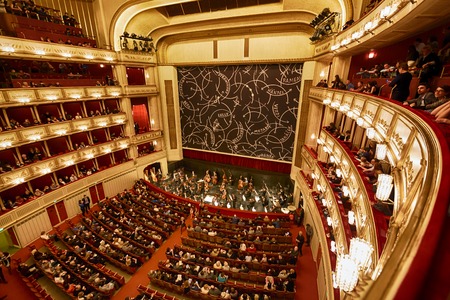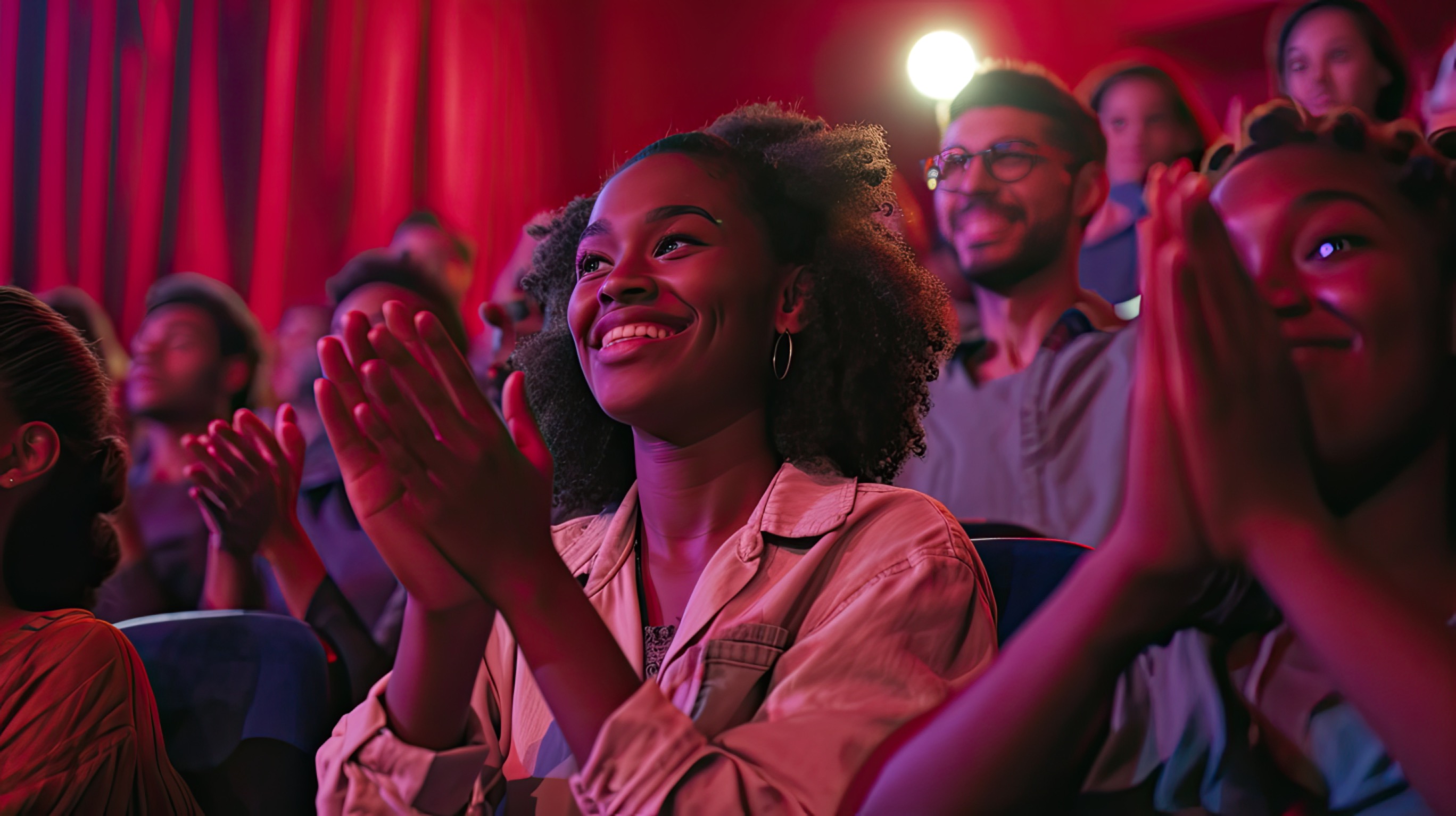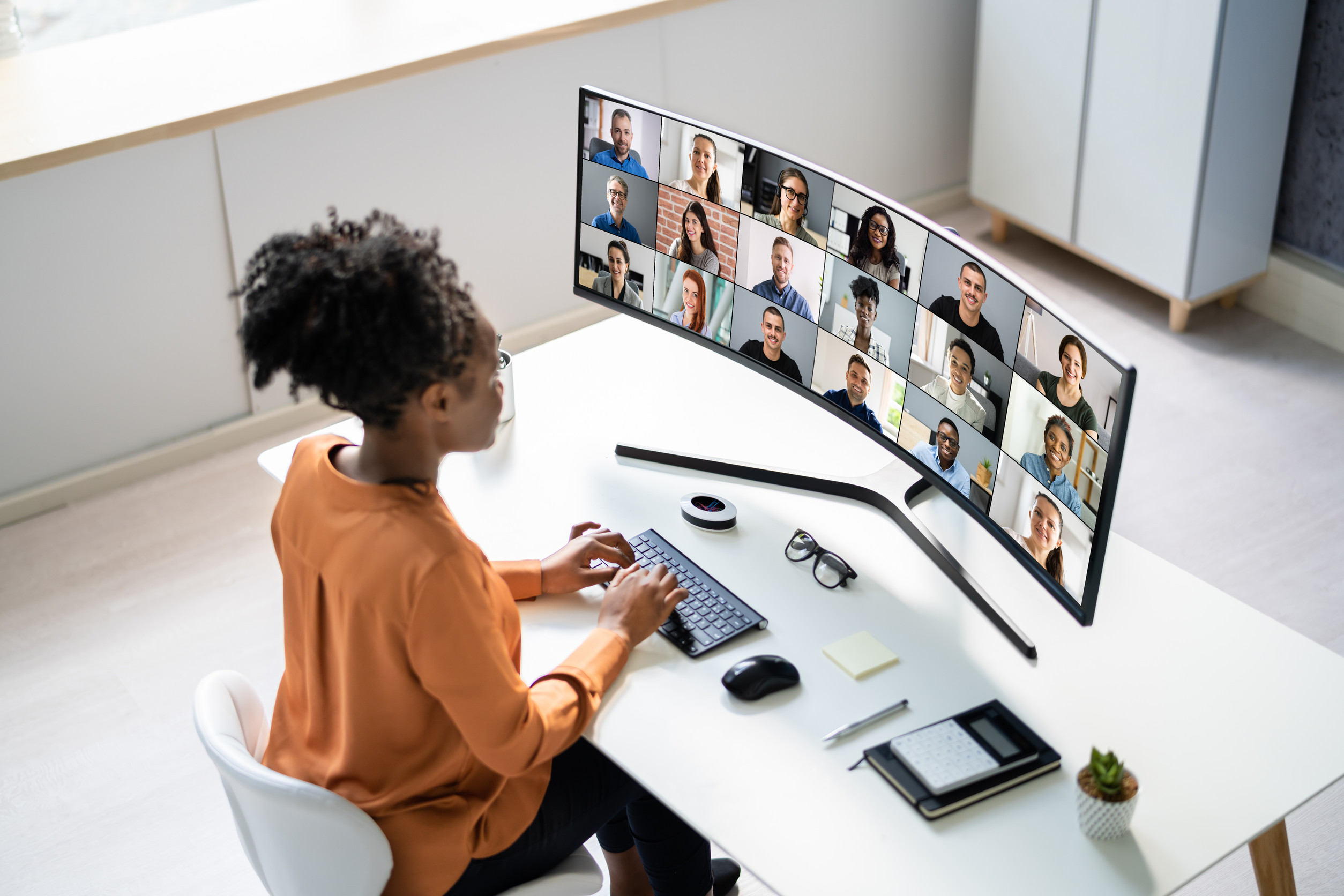Observing Theatre Etiquette
When Attending Performances

Theatres are a place for enjoyment and entertainment. We attend performances with the hope of being whisked away to a different place or time.
Every theatre event is special in some way. In fact, many cities take pride in their local theatres, with many performances becoming long-standing traditions. My husband and I are lucky that we have a beautiful performing arts theatre in our very neighborhood - Placido Domingo commemorated the grand opening!
With so much care, pride, and traditions tied to our theatres, we should also give thought to the courtesies and respect to be shown when visiting them.
Theatre Etiquette Basics
When planning to attend a performance, you're probably thinking about what you will wear, when you should arrive, and whether refreshments will be available.
Dress according to the formality of the performance. An outdoor concert will generally be casual, a play at an indoor theatre will require nicer attire, while a famed opera performance commands formal wear.
Opening nights and gala celebrations may have stated attire recommendations. Look for these before the date of the performance so you can prepare accordingly. Keep in mind, though, that theatre temperatures are usually cool, so sleeves or a wrap should be considered.
Arrive well before the performance begins. Many plays and orchestra performances keep latecomers in the lobby until a break in the performance so they are not disturbing to those already seated.
The most important theatre etiquette instruction I give is also at the top of every theatre's list: turn off your cell phone! Before every performance is an announcement reminding audience members that pictures and recordings are not allowed during the performance. And yet, when I'm sitting in the balcony, it’s easy to look down and see several people with devices are lit up actively taking pictures, recording the performance, or taking selfies while the stage performers are singing a favorite song.
More rules of good theatre behavior are:
- Do not communicate with the outside world while you are at a performance. Yes, turn off your cell phone. Placing the ringer on vibrate isn’t good enough, as a person sitting next to you will know when someone is trying to reach you. No temptation to text, email, or break the “No photo-taking or video-recording” rule during the performance.
- Sit in your assigned seat. Not doing so only causes unnecessary confusion and delay.
- Do not bring food, drink, or gum into the theatre. Some theatres have drinks and snacks outside for intermission time.
- Refrain from opening any item that is “crinkly” or noisy such as lozenges, tissue packages, or breath mint boxes.
- Cover your mouth if you cough. Make sure you have tissues or a handkerchief.
- Refrain from talking to your neighbor during the performance.
- Maintain a sense of personal space, realizing those near you have the same amount of space. No one enjoys sitting next to an armrest hog.
- Refrain from joining in with singing or orchestral waving of your hands or arms. A bobbing head is considered poor body language.
- Clap appropriately, as of course this is the way performers know they are appreciated. But avoid boisterous clapping that may annoy other audience members.
- Do not make boisterous shout out’s during the performance.
- Hold off on standing ovations unless something is truly extraordinary. Just because others are standing does not mean that you are required to.
Before You Arrive
Many potential annoyances or interruptions can be handled before you ever leave for the theatre. Consider these suggestions:
- Investigate ahead of time how much logistical leeway you'll need to make considering traffic and parking challenges. Being on time is very important.
- Eat ahead of time so that you aren't miserable during the performance and so that hungry stomach sounds don't annoy those near you.
- Most theatres have a call line for your babysitter in case of an emergency. When you arrive, let theatre staff know you have given this number to your sitter. They will note your seat number and, should the sitter phone, they can come and get you.
- Binoculars are appropriate to bring for viewing if you think they are needed.
A Few Points on Applause
- It's usually obvious when it's time to applaud.
- Classical music performances often have several movements. Between each movement there is a short pause. Usually, audiences only applaud after the entire piece is finished, not after every movement. Also, when the conductor turns and faces the audience, this is an invitation to offer applause.
- If you are attending a ballet, applause is offered when the conductor makes his entrance and sometimes after solos and pas de duex. When the dancers line up for traditional bows at the close of the performance, it is time to join in the applause wholeheartedly.
Just in case I've left any questions unanswered, click here for a video of two kind gentlemen who can review the basics of theatre etiquette for you. Enjoy!














